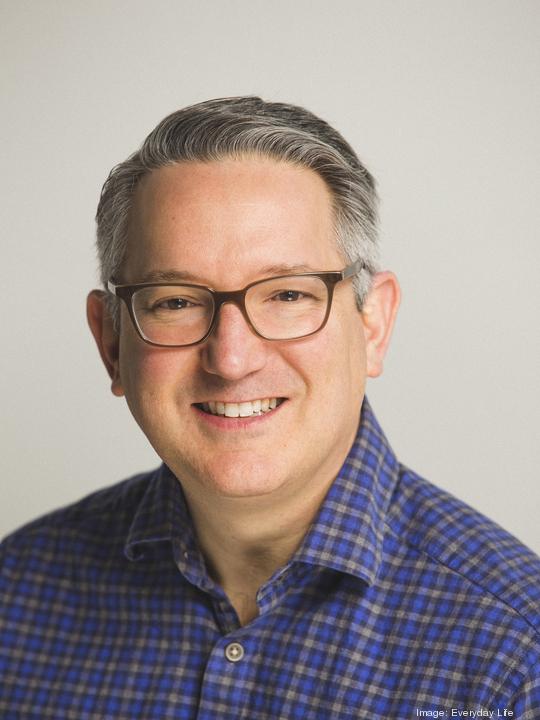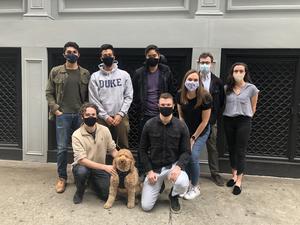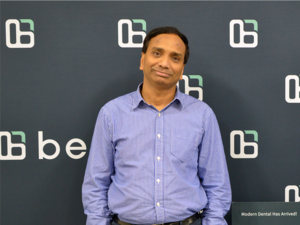
The process of obtaining life insurance can feel antiquated and confusing. That’s where Everyday Life Insurance comes in. Founded by Jake Tamarkin in 2018, Everyday Life Insurance provides life insurance plans that use what it calls "Predictive Protection." With the company’s Predictive Protection technology, the life insurance policies are designed to adapt over time based on changes in a person’s life, so that consumers aren’t overpaying for insurance. And the company’s needs assessment tool enables consumers to purchase policies based on how much coverage a consumer needs based on their current stage of life.
Here are 11 questions we had for Jake Tamarkin, CEO of Everyday Life Insurance, about the industry and how his company is trying to revolutionize the world of life insurance.
To start, can you tell me a little bit about your background?
Prior to starting Everyday Life, I was an executive at a couple of different life insurance companies, including MetLife and Foresters Financial. I also spent seven years as a management consultant at Ernst and Young, advising insurance companies, so I have a long background in the industry.
Where did you go to school?
I actually went to Berklee College of Music for undergrad. Before the whole insurance thing, I was a jazz musician. I think it's a very natural transition. Very common. You see it all the time. Somewhere in there, I got my MBA at Kelley School of Business at Indiana University. I always had an affinity for finance — my dad was a finance professor, and once I realized I wanted to make a career in insurance and financial services, I went back and got my MBA.
How did you come up with the idea for Everyday Life Insurance?
I had to buy life insurance for myself, three years ago, and it was an awful, horrible experience. ... Two different issues really upset me. One was that the price offered was so much higher than the price I was initially quoted, and it really felt like a bait and switch. ... The other thing was — it's kind of a dirty secret of the industry — most people end up buying more than they need, because they're one-size-fits-all policies. That means you'll be paying too much over time because most people require less coverage the older they get, which is counterintuitive for a lot of people. ... I thought to myself, gosh, if a guy like me, someone who's an industry expert and a finance expert, if this whole process is bringing me to my knees, how do regular everyday people fare? And I started looking into it and realized they don't fare so well at all. The industry is more and more concentrated just on rich people, and regular everyday people who actually need life insurance more than rich people do are getting shut out. And that really upset me.
Why is life insurance so important?
That's a great question because one of the ways the industry really irritates me is making it seem like everyone should get it, and that’s absolutely not true. ... There are two basic reasons for life insurance. One is for rich people to manage their wealth. It can be an effective wealth-management tool. Frankly, I’m really not interested in that. The fundamental purpose of it is to protect anyone whose standard of living would be impacted if the unthinkable happened. (The other is) people like parents of minor-age kids and people within committed relationships where you depend on each other.
What do everyday people need to know about life insurance?
From the outside looking in, it can seem very expensive and very complicated and it's hard to know whom to trust. But the reality is that if you can find trustworthy help, then it actually becomes very simple and very affordable. The key is just finding someone who can help you navigate the landscape.
And what makes your insurance company and plans different?
The first thing is, we're not actually an insurance company. You can think of us like an insurance broker. But we're independent, not beholden to any one company. So that allows us to organize everything around the customer. What makes us different is that we've built this technology that makes it super easy for regular everyday people. ... What I mean by that is, our plans are the only ones out there that acknowledge that people's needs will change over time — in most cases it's very predictable, how their needs will actually decrease over time. We build personalized coverage plans for people that cut the cost in half, simply by being pre-programmed to adjust the cost and the coverage as their needs are forecast to change. So, in other words, as their kids are growing up, the coverage steps down and the cost steps down.
What trends are you seeing: Are more people buying more policies? Less?
Over the last 20 years it’s increasingly becoming a rich person's product where traditional agents are focusing their time on serving wealthier prospects. As a result, regular everyday people are not getting approached and the marketing they get is kind of spammy. Many of them rely on their employers for coverage. But employers have been pushing these people into jobs without benefits and the gig economy. So as a result two thirds of US households make less than 100 grand, and of that segment, two thirds of US households use of life insurance fell by 25% over the last 10 years...But then the pandemic happened. And even though people weren't getting marketed to as much, just general consumer demand and appreciation for the value of life insurance kind of shot through the roof...And that hasn't stopped.
In June, it was announced that American Enterprise Ventures invested in your company. Why now for fundraising?
I think people are starting to recognize that the industry is ripe for change. There's been disruptive innovation across our entire economy. But insurance is kind of the last gigantic industry that hasn't been touched. And within that, life insurance is the last of the last. It's a huge, huge industry — more than a trillion dollars a year flows through U.S. life insurance companies. However, the U.S. is underinsured for life insurance by about $25 trillion dollars. Investors see a humongous opportunity, and yet no one's really solved it. The industry still operates by fax machine ... We're one of the new generation of companies bringing it online and serving consumers the way they want to be served.
What are you planning to do with the investment?
We're building our team. We're building products. We're growing a product team, our marketing team, and our engineering team. So I would just say that, if any of your readers who are excited about the idea of having a big impact at a mission-driven company that's rapidly growing, they should look no further than Everyday Life. The reason we're building our team is because there's still a lot more work to do. Ultimately, that investment in our capabilities is to expand the range of options for consumers and to improve the outcomes for them.








